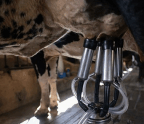Opinion: Harry Potter's Magic Fades When His Creator Tweets

This past weekend, Harry Potter author J.K. Rowling brought a lot of criticism on herself with a series of tweets that many read as transphobic. She seemed to have been set off by an article on access to menstrual hygiene supplies during a global pandemic that referenced "people who menstruate."
"People who menstruate," she tweeted alongside a link to the article, "I'm sure there used to be a word for those people. Someone help me out. Wumben? Wimpund? Woomud?"
She followed up a few minutes later: "If sex isn't real, there's no same-sex attraction. If sex isn't real, the lived reality of women globally is erased. I know and love trans people, but erasing the concept of sex removes the ability of many to meaningfully discuss their lives. It isn't hate to speak the truth."
You’re reading a preview, subscribe to read more.
Start your free 30 days



